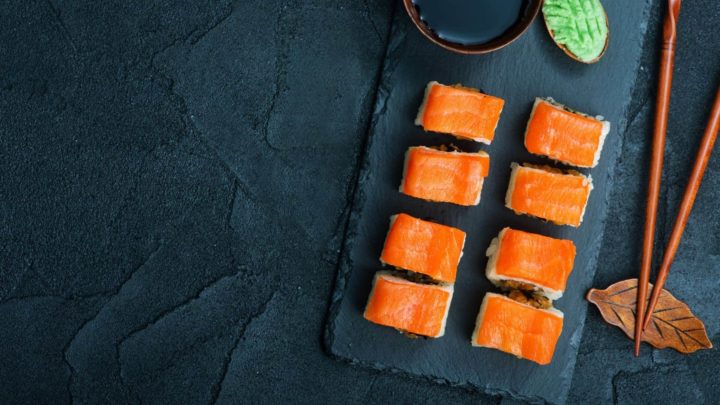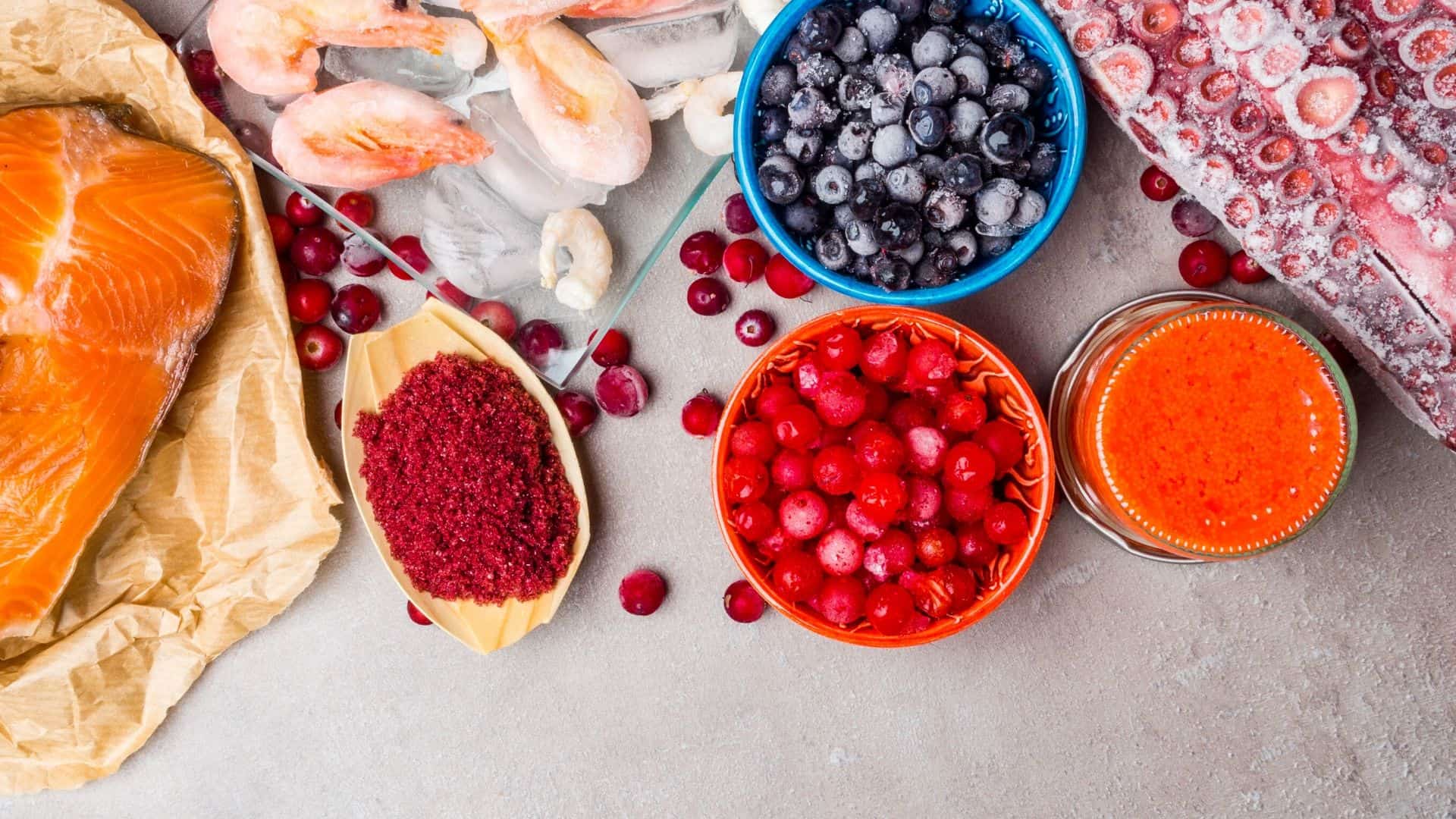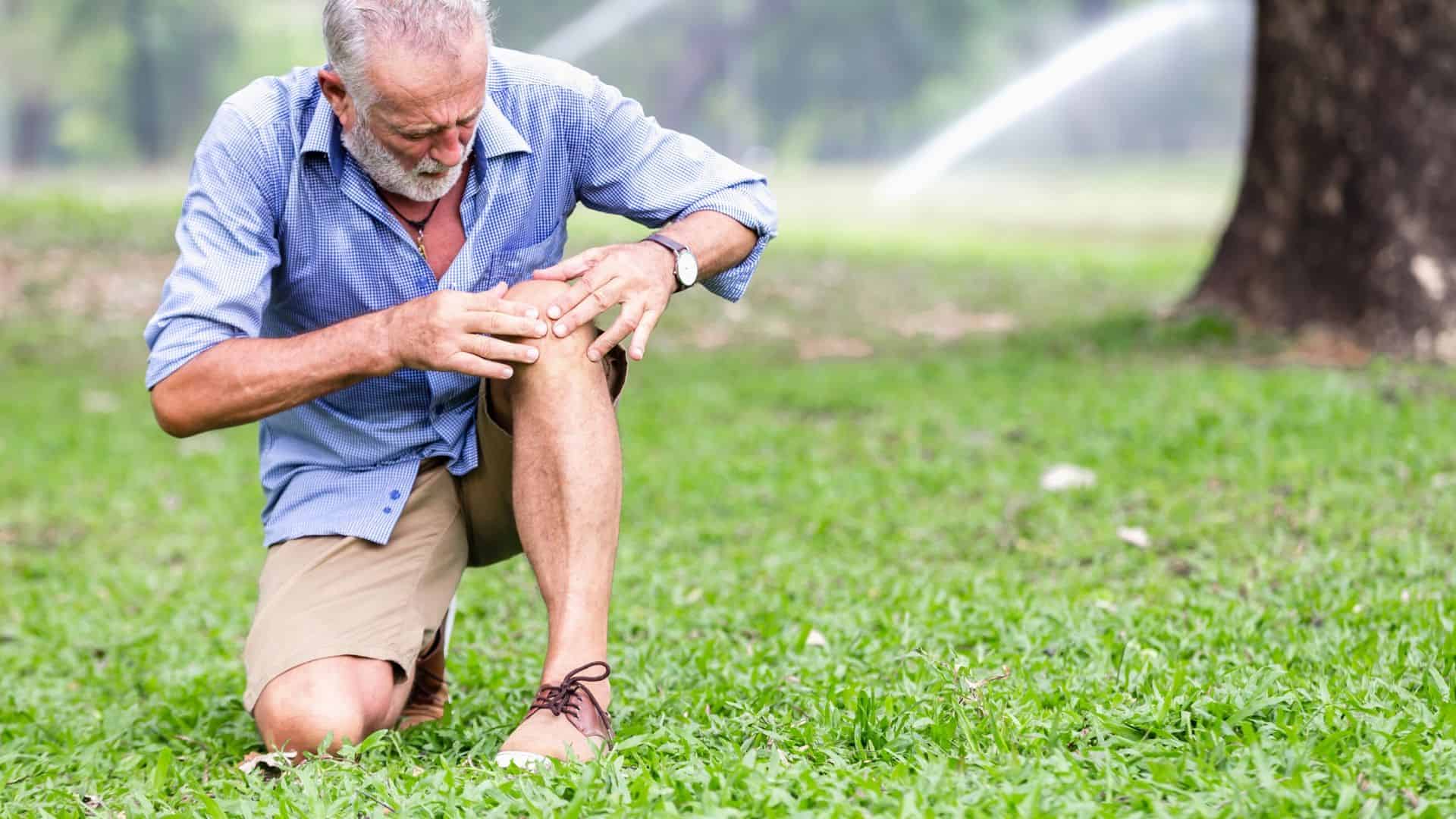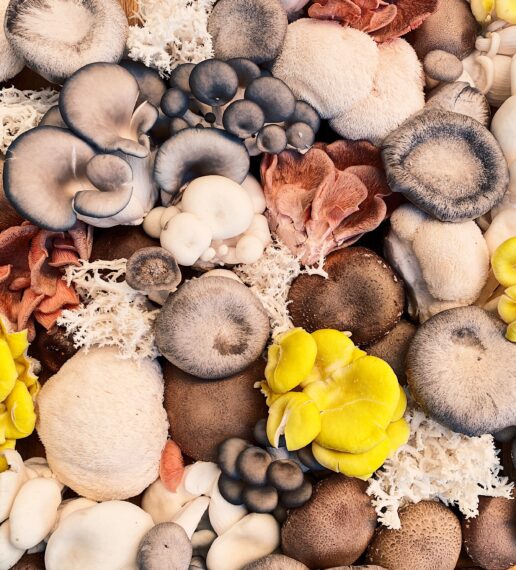What is Astaxanthin Good for and How Do You Take It?

Have you ever wondered why shrimp starts out gray but turns bright pink when cooked?
Astaxanthin is why!
Just like beta-carotene gives carrots, pumpkin, and peppers their bright orange color, astaxanthin gives marine life like sockeye salmon its pinkish-orange hue.
Astaxanthin actually shares a close chemical structure to beta-carotene and boasts some pretty remarkable health benefits. Here’s how it works.
What is Astaxanthin?

Astaxanthin is a type of pigment called a carotenoid. Carotenoids come in yellow, pink, orange, and red. (1)
Corn, pumpkin, squash, microalgae, peppers, salmon, shrimp, and even autumn leaves all contain different types of carotenoids.
Zeaxanthin is another type of carotenoid found in microalgae, paprika, saffron, and goji berries to provide a (you guessed it) bright red color.
Meanwhile, lutein, a yellow carotenoid, is present in leafy greens like kale and spinach, but the chlorophyll adds bluish-green to give these foods their dark green hue. Fascinating, huh?
The brighter the pigmentation, the richer a food’s carotenoid content. Some salmon manufacturers add extra astaxanthin to their product to make the color more appealing.
If you consumed nothing but carrots, your skin would eventually turn orange from the carotenoids.
Flamingos are born with gray feathers, but since they mostly eat brine shrimp — a major source of astaxanthin — their feathers turn pink.
That’s not all. It also functions as a powerful antioxidant with numerous health benefits.
What are the Top Health Benefits of Astaxanthin?

As a powerful antioxidant, astaxanthin fights free radicals in the body to reduce oxidative stress and support the immune system. Here’s what that means in terms of human health benefits.
It May Reduce Cardiovascular Disease
This pigment shows potential for reducing risk for heart disease on several levels by reducing blood pressure and supporting heart cell membranes to thicken artery walls.
Not only that, but it also may reduce triglycerides and LDL (bad) cholesterol while raising HDL (good) cholesterol levels to further support age-related long-term heart health.
It Boosts Cognitive Health
Early research suggests that astaxanthin is a neuroprotectant with antioxidant activity that functions as an anti-inflammatory in the brain. (2)
Studies show that this supplementation may reduce your risk of Alzheimer’s. Its protective effects are especially powerful because astaxanthin can cross the blood-brain barrier and reach parts of the brain that need antioxidant effects the most!
It Supports Healthy Skin
Astaxanthin is an incredible antioxidant for skin health and cosmetic benefits! (3)
It can, first of all, protect against sunburn and harmful UVA and UVB rays.
However, this supplementation comes with awesome anti-aging effects as well because it increases skin moisture, which instantly gives skin a plump and youthful appearance.
Plus, it may also improve elasticity to reduce fine lines, wrinkles, and even age spots! Skin elasticity declines with age as collagen production slows down, so supplementation is important for keeping skin supple.
It works best for aging when you take a supplement AND apply it topically.
It May Improve Athletic Performance
Helping muscles heal — just another awesome use.
Some studies on mice show that astaxanthin supplementation may help reduce post-exercise recovery time and even promote endurance.
Astaxanthin helps the body process and use fatty acids and lipids more effectively, which can boost exercise endurance and even reduce muscle damage. (4)
It Reduces Joint Pain

Since astaxanthin has potent anti-inflammatory effects, it’s a great natural choice for reducing joint pain. Clinical trials are underway right now. (5)
Did you know that roughly five million Americans suffer from rheumatoid arthritis? Rheumatoid arthritis is different than other types of arthritis because it’s an autoimmune disorder and not necessarily an age- related condition.
Studies show that astaxanthin’s powerful antioxidant potential may improve pain and stiffness in patients with both rheumatoid arthritis and other inflammatory conditions like carpal tunnel.
Men’s Health
Finally, many people may be surprised to learn that this modest antioxidant can help reduce male infertility.
In a double-blind study, researchers found that the effects of astaxanthin on men included higher sperm counts and better sperm motility! (6)
What are the Side Effects of Astaxanthin?
Unlike beta-carotene, your body doesn’t convert astaxanthin into vitamin A, so you don’t have to worry about overdoing it between food sources and supplements.
As with any natural supplement however, there are potential side effects. Because of this, you should consult with your doctor or other natural health care practitioner before considering using astaxanthin as a supplement.
Pregnant and breastfeeding women, in particular, should avoid astaxanthin because it hasn’t been tested for safety.
How Do You Take Astaxanthin?
You have a few options for reaping the benefits of astaxanthin.
First, you could consume more fresh sockeye salmon and shrimp.
You can also add a salmon or krill oil supplement to your diet because they both contain adequate levels of astaxanthin.
Astaxanthin is available on its own as a supplement as well. 6 to 8 milligrams per day for average people should be a perfect amount.
Some people take dietary supplements between 20 and 50 mg every day but experts haven’t tested astaxanthin for safety in such high quantities. That doesn’t mean it’s not safe — it just hasn’t been tested yet.
Good news, vegans. Astaxanthin supplements are easy to find from algae sources, so you don’t have to worry about salmon or crustacean sources.
Since astaxanthin on its own is a supplement rather than a food or medication, it’s not regulated by the Food and Drug Administration. The FDA regulates supplements retroactively rather than proactively, so choose a brand wisely.
The Bottom Line
Astaxanthin is a natural antioxidant found in a handful of food sources and delivers a bright pink color.
Since it’s pretty safe for human consumption with minimal side effects, you can feel comfortable adding astaxanthin to your diet to take advantage of its free-radical fighting power to reduce oxidative damage and other positive effects!

